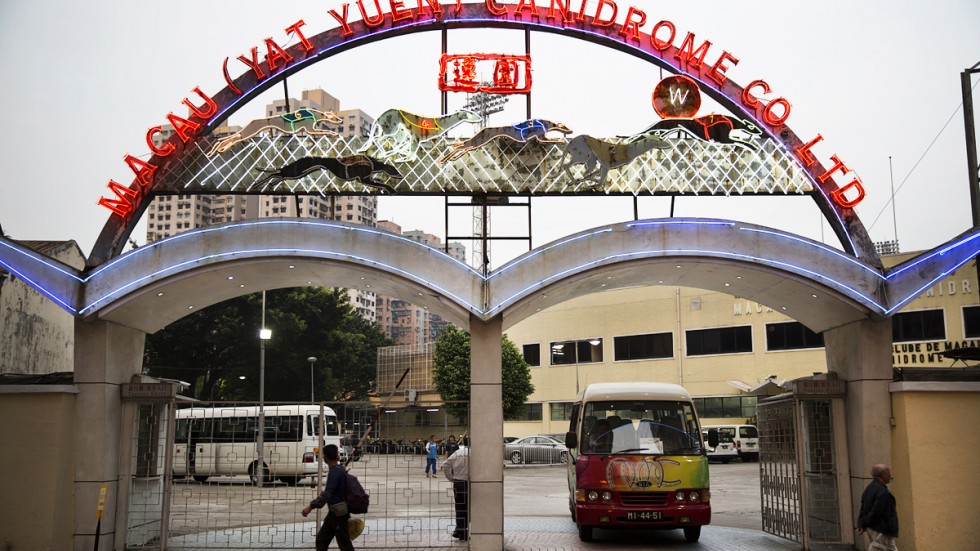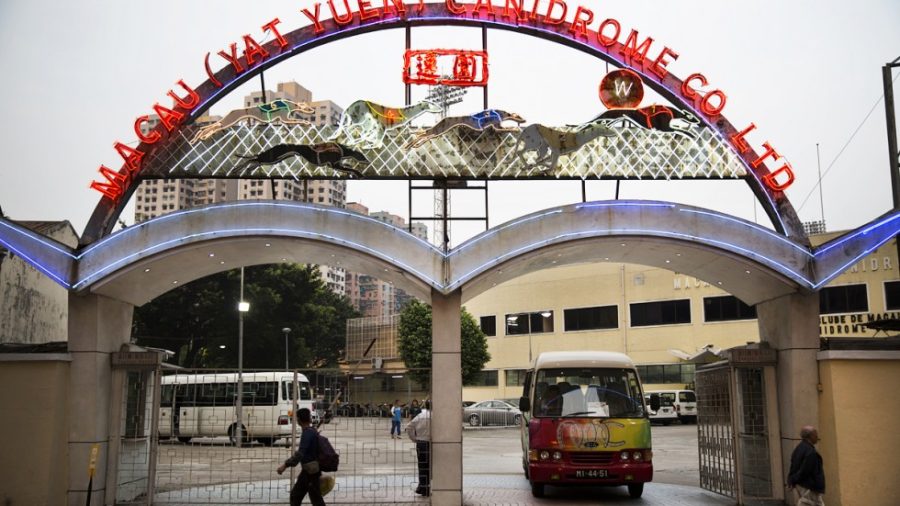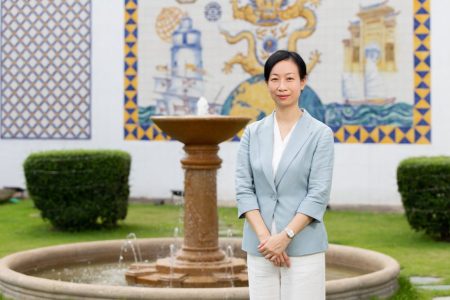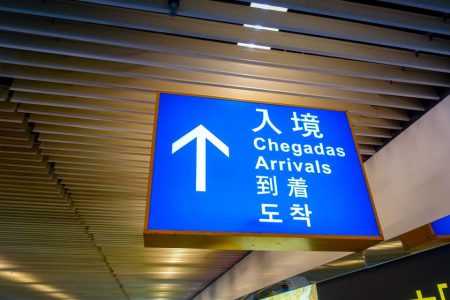The Commission Against Corruption (CCAC) told local media Wednesday that it had received a complaint earlier in the day about the ongoing process of looking after the greyhounds left behind at the closed Canidrome and their relocation.
The anti-graft body did not reveal who submitted the complaint.
The CCAC confirmation came after Hong Kong’s Next Magazine Wednesday published an interview with Tinna “Zoe” Tang, who quit local animal protection group Anima earlier this week.
In the interview Tang claimed that the requirement to complete the neutering of all the about 500 greyhounds left in the now defunct racetrack’s kennels within 60 days – disclosed earlier this week – may involve corruption and misconduct by some people. She did not elaborate.
Before she quit, Tang was a board member of Anima, Macau’s main animal protection group.
The Civic and Municipal Affairs Bureau (IACM) approved last week a request by the Macau (Yat Yuen) Canidrome Co. Ltd. for it to be granted an additional 60 days before taking back the greyhounds left behind at the Fai Chi Kei racetrack after its July 20 closure for good, as the bureau considered the company’s latest greyhound relocation plan to be “feasible”.
According to its latest proposal to relocate the greyhounds from the Fai Chi Kei racetrack, Yat Yuen plans to move the dogs to 11 residential units – most of them in villas or detached houses – where its staff and volunteers from Anima would take care of the dogs.
The bureau said last week that in its approval of the company’s latest greyhound relocation proposal, it told the company that the latter needed to carry out the vaccinations and neutering of all the dogs at a “steady pace” before they could be adopted. The bureau also said at that time that Yat Yuen had promised to fulfil this requirement.
As the bureau has green-lighted the 60-day extension, the new deadline for Yat Yuen to remove the greyhounds from the former racetrack’s kennels will be September 29.
The bureau has said that during the 60-day period, Yat Yuen must “commission” local animal protection groups to assist the company in looking after the greyhounds at the racetrack’s kennels, under the bureau’s supervision.
Anima said in a statement on Monday that “as per an agreement between IACM and Yat Yuen, the sterilisations [sic] have to be made in 60 days and inside the facilities of the Canidrome. The statement also said that “Anima has nothing to do with this agreement and does not oppose it”.
Customarily, the term “sterilisation” applies to human beings.
Monday’s Anima statement also said that “Anima’s role regarding the greyhounds’ health inside the Canidrome is only to detect animals with problems and to send them to the clinic inside the Canidrome.”
Yat Yuen had not relocated the majority of its greyhounds before the official permanent closure of the Fai Chi Kei racetrack on July 20 and simply left them there. Consequently, the bureau was forced to intervene in the matter, taking over the racetrack’s kennels and looking after the greyhounds. Several local animal protection groups have been assisting the bureau in taking care of the canines. The bureau has said that 533 greyhounds were left behind at the closed racetrack’s kennels.
Tang told local media outlets on Monday that she questioned why all the 533 greyhounds will need to be neutered within the 60-day period. She said at that time that many greyhounds’ health condition was “bad” and that neutering should not be the priority. She insisted that the greyhounds would only need to be neutered before their adoptions. She said the neutering process should be slowed down.
In a statement on Monday, the Civic and Municipal Affairs Bureau insisted that it has not ordered Yat Yuen to complete the neutering of all the greyhounds within the 60-day period. The statement said that the neutering process was being carried out at a “steady pace”, adding that 12 greyhounds had already been neutered at that time (Monday).
Monday’s IACM statement said that over 40 greyhounds were being treated for different diseases, adding that most of the greyhounds left at the old Canidrome kennels were in “normal” health condition.
According to Monday’s IACM statement, Yat Yuen is arranging for vets to neuter all the greyhounds under the bureau’s supervision.
The bureau issued another statement on Tuesday, which stressed that the greyhounds at the racetrack’s kennels are being properly taken care of. The statement noted that the bureau is properly looking after the dogs with Anima’s assistance.
Tuesday’s IACM statement also said that the bureau has improved the facilities at the kennels and its hygiene. The statement also said that the bureau has strengthened its cleaning and disinfection tasks at the kennels.
According to The Macau Post Daily on Tuesday, Tang launched a campaign to collect signatures online for a petition urging the government to allow volunteers to look after the greyhounds at the racetrack’s kennels every day. She said at that time that volunteers were only allowed entry to the kennels on Saturdays and Sundays. She said that more volunteers were needed to take care of the dogs as more and more of them have been neutered.
In the Next Magazine interview, Tang said she suspected that the 60-day neutering deadline may involve corruption involving several million patacas.
According to Next Magazine, Tang also said she had urged the bureau to use volunteer vets from Anima but that “someone” had rejected her request. She did not elaborate.
In the interview, Tang claimed she saw that vets from organisations which she said she did not know go to Canidrome to neuter greyhounds there.
Tang also claimed that salespeople from a drug company suddenly contacted her and tried to sell her anaesthetics for canines. She did not elaborate.
Tang said that medical equipment normally used at the government’s kennels run by the bureau had been transferred to the Canidrome for private-sector vets to use. She claimed that the transfer did not follow official procedures.
Tang said that’s why she decided to take the initiative and file a complaint to the CCAC.




